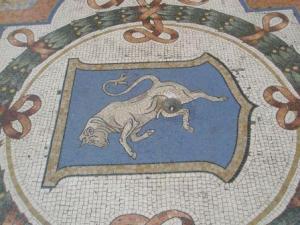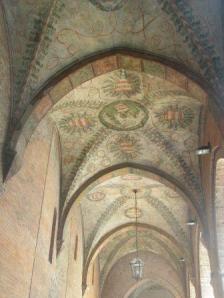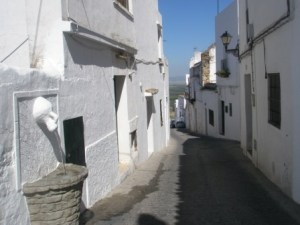There was a piece of cake in the fridge.
It was large piece of chocolate cake, left over from a birthday party we’d celebrated with the sort of feast from which family legends grow.
As a token gesture towards nutrition and balance we’d started with sandwiches – tomato, and ham with kiwi fruit. Then there was a spicy pear cake; apple and mincemeat short cakes; Grandma’s Blow Away sponge, from the Edmund’s Recipe Book; an enormous jelly sponge; and the chocolate cake.
It was a lot of food; but three generations of extended family and several close friends had done their best to see justice was done to it. We’d all eaten so much there was absolutely no need to eat anything more.
But you know what it’s like when you’ve had too much fat and sugar: your digestive system signals that you’ve had more than enough and your head tells you a gentle walk would be good. But your eyes are bigger than your stomach and your mouth is still watering. Besides, one of the rewards of cleaning up is to pick a little at the leftovers and there was such a large piece of cake left over that a tiny, wee slice wouldn’t be missed.
There was a piece of cake in the fridge.
It was a medium-sized piece of chocolate cake. But not any old ordinary chocolate cake. This was the one, which extensive reconnoitering in homes and cafés around the world, enabled me to confidently declare was the very best chocolate cake I’d ever tasted.
The recipe came from a book given to me by a friend who shares my belief that chocolate is one of the major food groups essential for physical health and mental well being. It is not, however, the sort of recipe book likely to win any ticks from the heart foundation. Not when people can gain a couple of kilos from just looking at the pictures; reading the recipes may have a detrimental effect on blood pressure and even thinking about them could harden the arteries.
The book has 128 pages, each and every one of which is dedicated to delightful and decadent ways to employ the delicious product of the cocoa bean; and in this book which pays such devoted homage to the joys of chocolate, the cake in question was the richest and most chocolaty of all.
It started with two chocolate sponges, moistened with liqueur then sandwiched together with layers of white and brown chocolate cream. Not content with the fat and sugar content of this delectable confection, the recipe insisted on icing it with yet more chocolate, diluted to spreading consistency with melted butter.
It looked sensational and tasted even better. The only problem with it was that it tended to get a tad messy once it was cut and that chunk that was left in the fridge really was begging for a bit of tidying up: nothing major, just a spoonful or two scooped from the crumbly bit on one side and then a sliver from the other to even it up.
There was a piece of cake in the fridge.
It was a smallish piece of chocolate cake, the equivalent of that last half glass in the wine bottle. Not of course that the cake could be compared to alcohol. Goodness, people use that as a prop, they drink to forget, or to compensate for their inadequacies, and they become addicted.
But of course I wasn’t like that with this cake. You couldn’t call wanting just one more, very little piece, a compulsion or compare it with an addiction. I could have stopped right then, shut the door and left it if I’d wanted to. But I didn’t want to. And I was a bit tired and hungry. Well, not hungry as in not having had enough to eat, but hungry for comfort. So we’re not talking mere want here, what I felt was need. I was tired, looking for comfort and I needed a sugar fix. That means it wasn’t so much food as medicine and having just a little bit wasn’t an indulgence, it was a dose.
There was a piece of cake in the fridge.
It was a tiny, wee piece of chocolate cake. So tiny and wee that it wasn’t so much a piece as the crumbs of the leftover remains of a piece. So tiny and wee that you’d wonder why anyone bothered putting it there, especially in view of the exhortation on the fridge door that: “a little waste is better than a lot of waist”.
Apropos of that it seemed silly to waste space keeping it; so, really and truly, getting rid of it was good housekeeping. It wasn’t that I really wanted to eat it, I certainly didn’t need to eat it, and there was so little left it really wouldn’t have mattered if I’d just scraped it into the compost bucket. But then if there was so little left, it wouldn’t do any harm to eat it either…
There was a piece of cake in the fridge but it seems to have disappeared.
© E.J. Ludemann 1990



 Posted by homepaddock
Posted by homepaddock 








